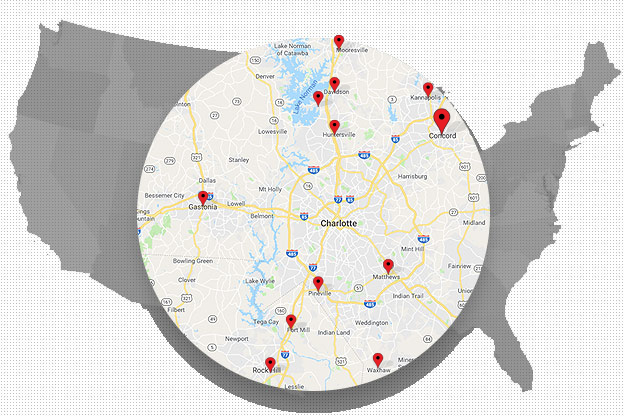5 Best Sump Pumps for Your Basement

Sump pumps safeguard your basement from floods and reduce the possibility of water damage by ridding your basement of water before it takes hold.
Because of global warming, there is an expected increase in household flooding over the next few years of around 30%.
Getting the best pump for your home will protect groundwater and floodwater from eroding your home’s structure. It will also enable you to make the best use of below-ground areas.
There are several commercial sump pumps on the market.
Purchasing a sump pump, in addition to flood insurance, is the most significant way for homes to control the significant financial burden that comes with floods.
They may save you hundreds of dollars in water damage repairs, making its initial cost well worth it.
Our five top picks present a range of solutions. Some are general-purpose pumps that come in handy during a flood. Others are to be permanently installed. We are delighted to provide our suitable suggestions for each of them. Read on to find out which sump pump suits your needs best.
How Do Sump Pumps Operate?
Sump pumps are most commonly seen in basements and crawl areas. Water will drain into a built-in hole pit surrounding the basement, where a pump is installed.
Most of them come with an automated flotation device that activates when the water level reaches a specified level. The water it gathers is then sent outdoors through a hose. While there are several types of pumps, they all serve the same purpose.
Types of Pumps
As basement water issues emerge, they must be prevented and eliminated. If these issues arise in your house, you must find solutions quickly.
Sump pumps drain water into sump basins, which are pit-like structures placed into the basements of your house. The sump gathers water that enters your basement from rain or subsurface dampness.
The sump pump will direct the water to exterior drainage if the sump pit becomes full. This system keeps water from flooding the basement and is essential for households that suffer severe rains yearly.
The sump pump includes the groundwater collecting system, check valve, primary pump, discharge line, and sump pit.
Here is an explanation of the five best pump types to help you make an informed decision about which one your home needs.
Submersible Pumps
Submersible sump pumps are intended to be completely immersed inside the sump pit. These pumps are more powerful, making them an excellent choice for flood-prone properties. However, the submersible pump may not be the ideal solution for people on a tight budget.
If you live in a location with a lot of rain or low elevation, a submersible pump is your best choice. Even though it is more expensive, the increased power will keep your basement from flooding during heavy rains.
Pedestal Pumps
As opposed to a submersible sump pump, a pedestal pump has the pump motor elevated above the sump pump, much like it is on a pedestal. An extension shaft extends into the sump pit to access the water and filter it.
Pedestal pumps are ideal for low-flooding basements or those on a friendly budget. Anyone who lives in a high rainfall location or at a low elevation may find the power provided by this pump insufficient.
Water-Powered Pumps
One thing you should consider is the power supply for your pump. Most ordinary sump pumps are powered by electricity. Therefore, they will not function if the power goes out. If you live in a region prone to power outages or severe storms, it would be a good idea to investigate a pump powered by something other than ordinary electricity.
Water-powered pumps are ideal for homeowners that experience power disruptions during storms. If the power goes out, homeowners usually install a water-powered pump alongside a submersible or pedestal pump as a backup.
Battery-Backup Pumps
Battery-backup pumps are similar to water-powered pumps in that they do not use the main power line. These pumps are submersible. However, they come with a battery within the casing.
As the name implies, battery-backup sump pumps are best used as a backup. Keep a battery-powered pump in your basement for if the electricity goes out.
Combination Pumps
A combined sump pump is used with battery backup and primary power. These pumps function by having a battery accessed if the electricity goes off. It is a terrific solution for homeowners that wish to keep their basement utterly safe at all times.
Combination pumps are ideal for individuals that require the most protection. If you can afford it, this is a fantastic alternative. In general, the combined pump is the best option since it protects both when the power is on and off.
All the above types of sump pump equate costs with their features. Analyze your budget thoroughly before purchasing a pump.
Sump Pump Installation
The installation of a sump pump is not a simple task. You can figure out how to install a pump yourself if you’re proficient with tools; moreover, if you are unsure of your talents or if your home does not have a pit, you should hire a professional contractor such as Sedona Waterproofing Solutions to install a basement sump pump for you.
Select the Best Sump Pump for your House
Purchasing the best pump is a secure way to ensure your basement is protected against floods. Now that we’ve taken a look at the best sump pump types consider the elements stated above, Sedona will help select a type that suits your needs.
When you install a sump pump of your choice, you need to maintain it, so it works fine. If you face any difficulty while operating it or still need help deciding, call our experts.
Learn more about Sedona Waterproofing Solutions.
Recent Posts
- How Crawl Space Encapsulation Benefits the Environment – An Expert Guide
- 6 Ways Professionals Keep Your Crawl Space in Top Shape
- Structural Repair Solutions for Crawl Spaces, Basements, and Foundations
- Essential Crawl Space Repair Tips Every Homeowner Should Know
- The Importance of Radon Mitigation: Ensuring a Safe Living Environment for Homeowners
Categories
- Basement Mold
- Basement Waterproof Foundation
- Basement Waterproofing
- Crawl Space Dehumidifier
- Crawl Space Encapsulation Cost
- Crawl Space Repair
- Crawl Space Waterproofing
- Encapsulation
- Foundation Repair
- Foundation Waterproofing
- French Drains
- Leaky Basement
- Mold Remediation
- Mold Removal
- Radon
- Slab Jacking
- Sump Pump
- Uncategorized
- Vapor Barrier
- Water Leak
- Waterproofing
- White Mold
Archives
- June 2024
- May 2024
- March 2024
- January 2024
- June 2023
- May 2023
- April 2023
- March 2023
- February 2023
- January 2023
- December 2022
- November 2022
- October 2022
- September 2022
- August 2022
- July 2022
- June 2022
- May 2022
- March 2022
- February 2022
- January 2022
- December 2021
- November 2021
- October 2021
- September 2021
- August 2021
- July 2021
- June 2021
- May 2021
- April 2021
- March 2021
- February 2021
- January 2021
- December 2020
- November 2020
- October 2020
- September 2020
- August 2020
- July 2020
- June 2020
- May 2020
- April 2020
- March 2020
- February 2020
- January 2020
- December 2019
- November 2019
- October 2019
- September 2019
- August 2019
- July 2019
- June 2019
- May 2019

